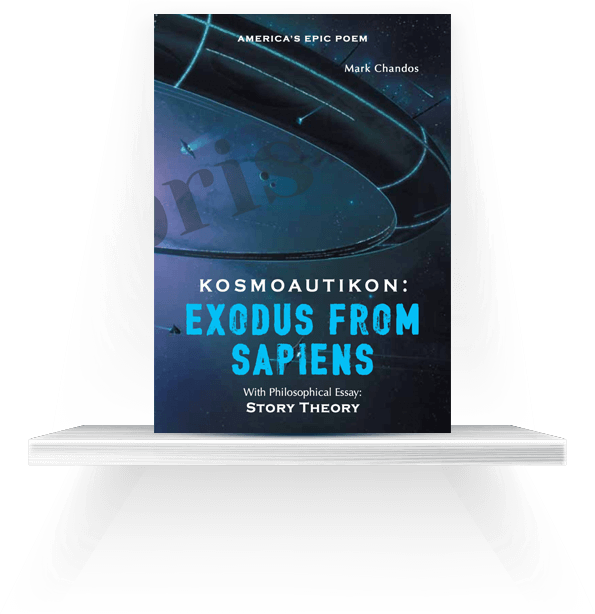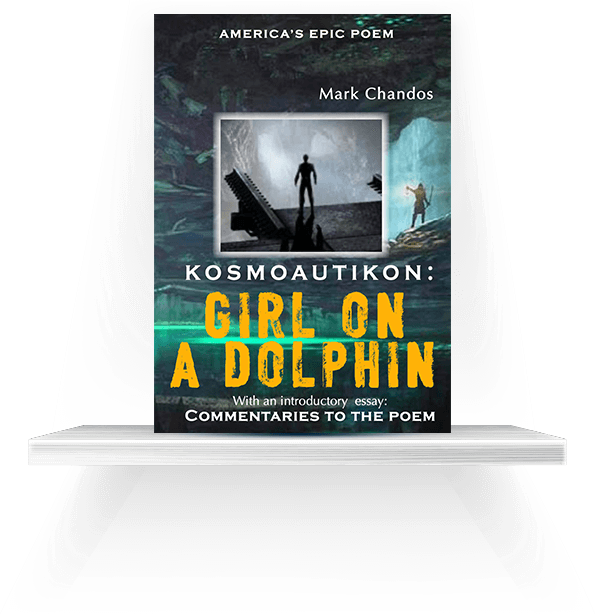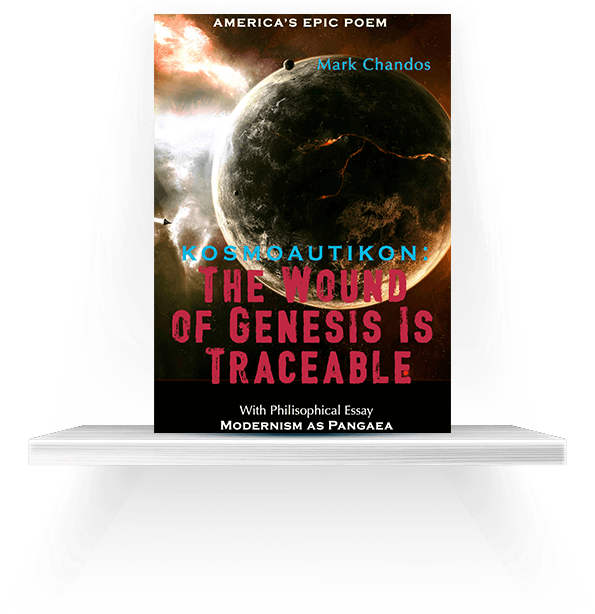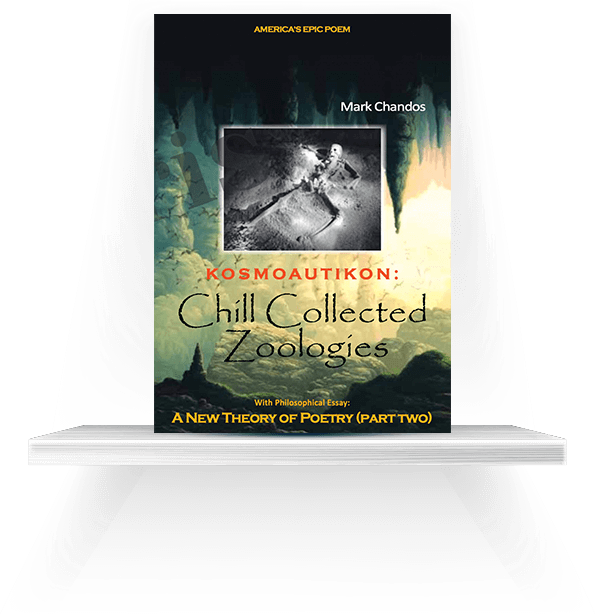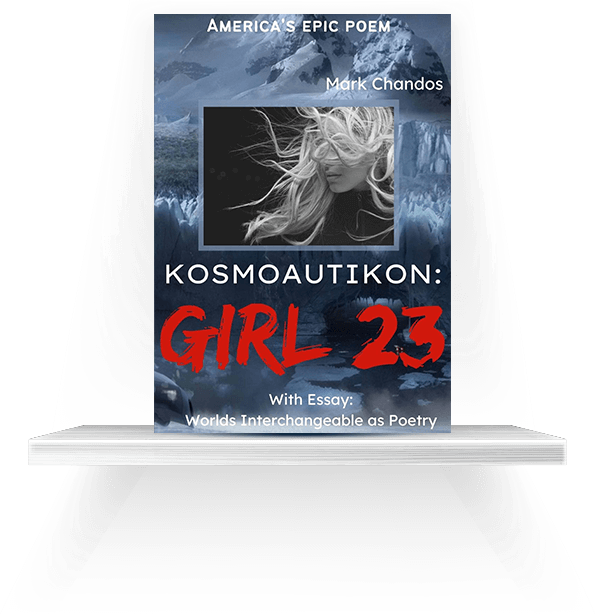The Purpose Of The Human Mind + Why Poetry Matters
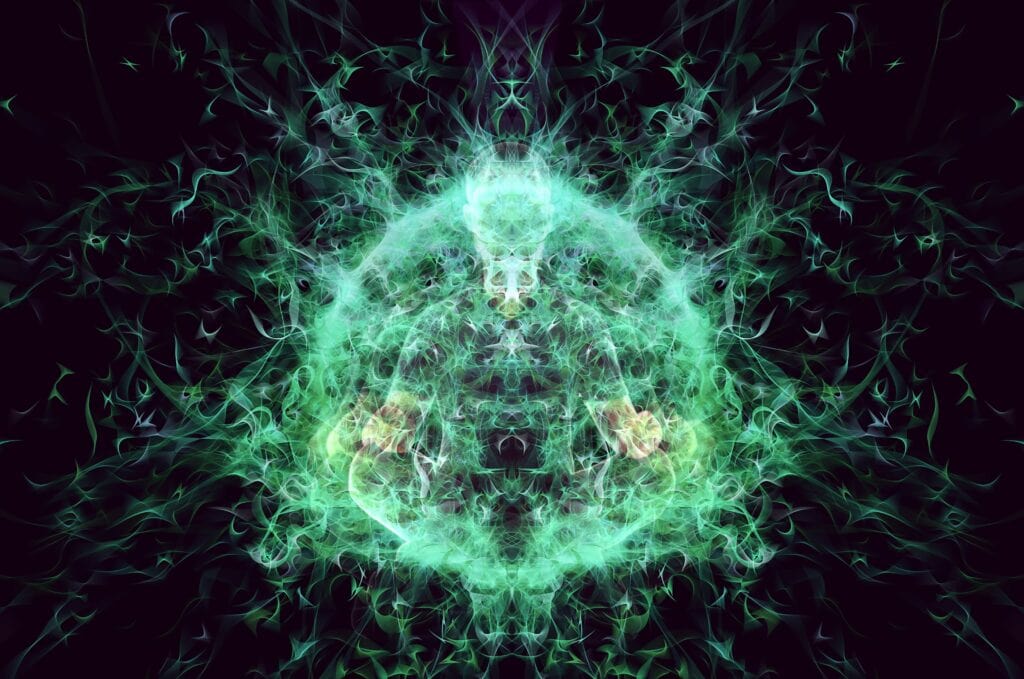
The Purpose Of The Human Mind + Why Poetry Matters
Poetry is a test of justice. The human ear is able to detect justice – or the want of justice – in each sound proceeding from the mouth of men. Each line of a poem, or a speech, is either just or it is unjust. This constitutes the only possible theory of poetry.
A sentence with a poor choice of words, or showing deceptive intent, political bias, or obtrusive artifice – is not just. If a speech jars, if it is unable to clarify human necessity, it is lost – it is erased, repressed, forgotten. It is not passed on to other humans. What is not retained in human memory is expunged from the human record. Therefore poetry, as memorable speech, is all that remains to verify that humans existed, once, in a lost time and place. A man’s speech, even in the first syllables, tells us if he is just or not.
This leads directly to the question, what is the purpose, bias, or intention of a mind that selects speech? No philosopher has addressed the mind of Homo sapiens as a machine of ruthless selection. The most severe were too soft and too kind. If this mind (of Homo sapiens) makes a selection of human justness, what is the awesome genesis of its bias? Can the mind’s selection of monumental speech, as found in human story, tell us what the human mind wants with us? Surely there is purpose to this mind? That is the thesis of Story Theory.
What class of speech is considered most just by the mind of Homo sapiens? Poetry or prose? What will happen to the highest human speech if we fail to enter the galaxy with our idiom intact? Can it be lost as all other speech has been lost? Which idiom will survive the holocaust of man’s impending conflagration? Can we survive the Tower of Babel? These are the questions posed by Story Theory, as dramatized in the poem Kosmoautikon.
There is more we wish to know. How much of his life can the citizen explain to himself? Modernism conceals much of the human condition. Can he explain his own self-consciousness with competence and accuracy?
Modernism attempts to obscure our non-material origins. Modernism limits the public debate of existence to physical matter – even as much as citizens are told by scientists that the atom is empty. There exists in modernism a shameful contradiction. Then how to characterize the unseen? Homo sapiens, it will be remembered, were first discovered characterizing the unseen with marvelous symbols, when early men buried the dead with the certainty of the existence of an unseen afterlife.
It was then, at the earliest documented moment of our mind, that poetry appeared – using symbols with charged value. How may he explain his prophetic soul, his intuition, or his instinctive judgment? The modern, therefore, still must explore these faculties, with poetic speech, since, using scientism, he cannot otherwise explain these mysteries.
Because man stumbles and trips to explain with competence his consciousness, there is epic poetry – a story of human justice told with memorable speech. Epic poems contain parables of life. A parable (story) is impervious to time, sits outside of time, and cannot be diminished by time. No science or ideology can destroy a parable – since it exists forever outside of time. It is almost incredible to observe, but only another parable can challenge a parable. Worked over, again and again, generation after generation, honed as a razor of thought, epic parables become a mirror of our highest and most essential qualities. Epic speech – somehow “just so” – somehow perfect, round and just – is, in effect, a time machine outlasting monuments of stone.
For eight centuries, when Greek men were in doubt, lines from Homer were referenced again and again to regain their social bearings. For 2500 years, when Hebrews and Christians were in crisis or moral doubt, lines from their scriptures were used incessantly to reorient their mental and moral compass. This is the invaluable monument of epic speech and parable.
Consequently, the thesis of every epic poem is justice. The thesis is made, in epic parables, that justice is the highest and most essential essence of the human mind. That which does not conform to just speech, that which is not approved as memorable, must be rejected. And that is the point. In a strong poem transitory politics, opinion, and fashion are sublimated into parables of lasting value. This is the epic spleen.
We search out justness in human speech since we still do not know, otherwise, the origin and purpose of the mind of Homo sapiens. Justice is the skeleton fossil of our ancient mind – otherwise unobservable in abstract.
Story Theory, as explained in book one of this series, shows that stories created by the mind of Homo sapiens are prisms – mirrors reaching back to our origin in a First Intelligence. That is the thesis we test. We focus our eyes on human story since story reveals the fossil bones of the First Mind – the same mind that created Homo sapiens. Though controversial, the method makes breathtaking discoveries, otherwise explaining heretofore unexplainable phenomena in human experience. We do not live lives of “reality,” rather, and this is the point, it can be shown that we live lives according to the stories we accept of our lives.
The first and most original discovery of Story Theory is that the human mind never once has observed an independently existing reality. Our mind is only able to make linguistically determined representations of subjective realities. Society may appear to agree on daily altering states of “reality” only because cultural man usually shares the same linguistic culture. We see the same facts of a narrative only when we deeply read, and trust, the same narrative. In most cases and in all times most of what passes for human “reality” can be traced to a text, a story, a teaching, a science, an education, a political platform, or an ideology. Each of these is a species of story making.
We investigate human story because we do not possess a mind observing a fixed reality – and never will. In this perspective, all we possess of our “ancestry of truth” is the stories we make. Therefore a story, a poem, a parable of man, is the means by which we nominate our highest and most essential quality. Kosmoautikon traces the narrative bones of First Mind. The primary work is to deconstruct the lies of scientism, since science, also, has never once observed a fixed reality. Faced with this perspective, we know what necessarily must follow next. A story must be told to illustrate this perspective. Yet how to enchant our story with proverbial power? The poet knows what he must do. He must carefully cultivate an interior voice, and not rely exclusively on his own limited powers.
No human speaker seeks out ugliness of expression, no storyteller studies incomprehensibility and no humanist ever wishes to promote mindlessness. These are the facts Story Theory follows. The mind we possess values only what are the highest and most essential qualities of human speech. Truth is painstakingly preserved; lies, resulting from artlessness, from ideology, from commercial or political interest, are rejected. We do not, today, seek out the gem-like beauty of Nazi racial theories, nor do we breathtakingly recite the poets approved and funded by the Soviet regime. Poetry must be free – not politically contrived. In this way, we learn how the mind of Homo sapiens operates.
How else to measure the scope, the purpose, or the fossil construct of the mind we possess if not by the speech it preserves for future generations? In practice, the human ear carefully weighs each human sentence as a gem cutter holds up to the light a new cut diamond: a sentence is either just or it is unjust. When a society’s literature is reduced, again and again, refined in each subsequent epoch, what is left are pithy excerpts from larger works, now lost or unread.
In most human societies, information held for retention are usually excerpts of that societies’ metered verse – its poetry. Most of what people recite, when they discuss ancient Israel, Greece, Rome, or Britain are careful selections from Moses, Homer, Virgil, Ovid, Milton, or the Shakespeare poet (Oxford). These are poets impelled, thrust forward, by the epic spleen. Of the just societies we wish to claim for our heritage, what is remembered, what is established for perpetual monument is the highest and most essential speech of our mind. So common as to pass unnoticed, this is how the mind of Homo sapiens works. We remember poetry, and it is exactly preserved, best because a metered verse cannot be altered (without destruction) and thus the poem is permanent information of the human condition– impermeable to future human alteration. Epic poetry is a vitally important invention, an invention of justice, surpassing all previous human technologies – all of which are quickly outmoded and replaced.
The final logic of a just sentence is that a just school of poetry (memorable speech) is the test of a just society. A lying society cannot make just speech. And that is the test of a school of poetry. As will be shown in the following pages, modernism does not possess a strong school of poets because it is not a just society. It lies.
So far the lesson of Story Theory is simple and not obscure. We have considered how a parable, existing outside of time, cannot be challenged or destroyed by any other “thing” – except another parable. We have learned that an epic poem, when metered, cannot be altered, and thus is a permanent means of preserving and passing on human information. Of the last ten thousand years, we have lost everything except a collection of parables, stories, and epic poems.
Epic poems are strange and uneven – often left unfinished. Yet something is revealed about the mind of Homos sapiens in an epic poem. Though an epic poem does not especially introduce new plots, it contains everything ever known by a society. An epic poem seeks the highest and most essential qualities of a nation’s speech. That is a prize of great value. It is a race for supremacy. Any person willing to take the name of a poet, by default, respects and fears the summons to write a nation’s epic poem, as a novelist naturally struggles in each story to write the great American novel. Yet we are equally human and share the same powerful mind. Even a race car driver from Kansas aspires to win the Gran Prix at Monaco.
So we may dispense with cant and hypocrisy from the outset and get to the heart of the matter. What does the mind of Homo sapiens seek to monument? Its technology? Its intelligence? Genius? Righteousness? Audacity? Inventiveness? Atomic technology? Social toleration? Racial, cultural, or ethnic purity? No, it seeks only justice of what a human ear can select as just – and subsequently is designated memorable speech. It is to be considered that a time will come when our highest technology will seem ridiculous (or even shameful) to a future race of men. Each human revolution, each new philosophy, each new religion has only one element in common. Each revolution, philosophy, and religion begins with memorable speech. They make a race for supremacy of idiom. Without memorable speech, in effect, the human cannot be proved to exist.
Since the Earth will soon look like Mars, barren of all life forms, we encode poems to ensure our information survives beyond our current planet. This is possible only because, in the final analysis, we are aliens to earth.
Kosmoautikon is true to this perspective.

